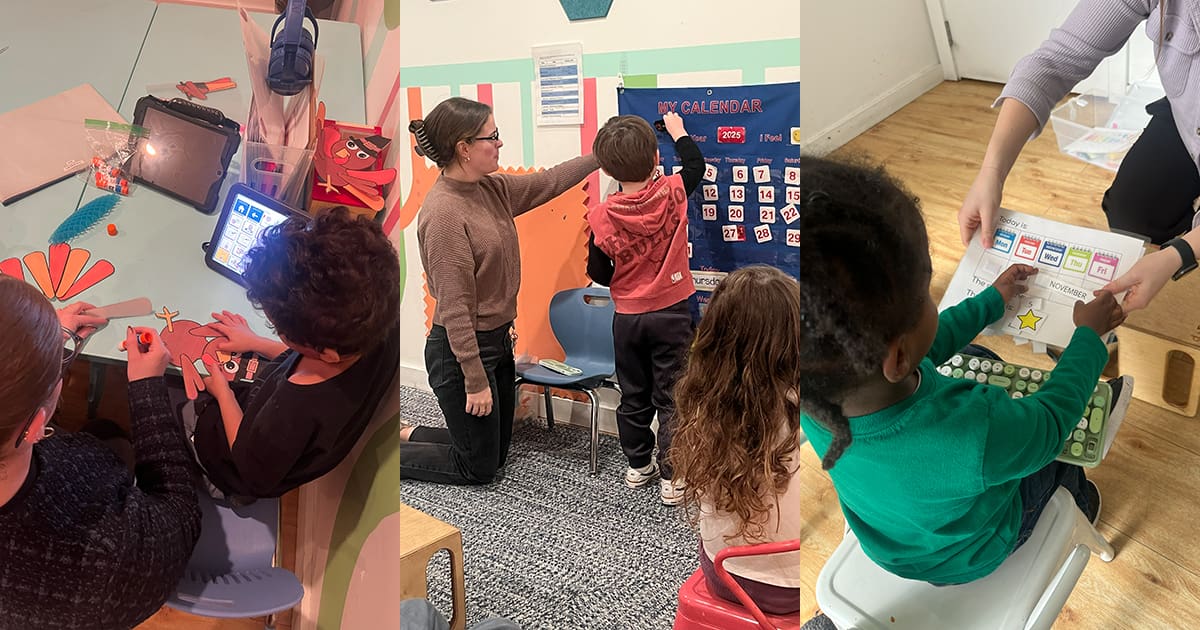Share this Post

Supporting your toddler’s big leaps in movement, communication, and independence
The toddler years are a time of exciting transformation. Between ages 1 and 2, children rapidly move from first steps to full-speed running, from simple gestures to expressive words, and from observing others to asserting independence. These rapid changes are all part of the typical growth pattern known as developmental milestones. For parents, understanding these milestones can help guide expectations, encourage healthy development, and identify when additional support may be needed.
At CST Academy, we help families navigate this important stage through our comprehensive Pediatric Therapy services. Whether your toddler is thriving or showing early signs of delay, knowing what to expect in this age range will help you feel more confident supporting their journey.
What Areas of Development Should You Watch?
Development in the toddler stage is often fast-paced and uneven, which is completely normal. One day your child may say a new word; the next day, they may seem to ignore you completely! That’s part of how growth unfolds at this stage. Most developmental milestones during ages 1–2 fall into five key areas:
- Gross Motor: Walking, climbing, running, kicking
- Fine Motor: Stacking blocks, feeding themselves, turning pages
- Speech & Language: Expanding vocabulary, following directions, combining words
- Social & Emotional: Showing preferences, beginning pretend play, expressing affection or frustration
- Cognitive: Recognizing objects, exploring cause and effect, solving simple problems
By the end of this stage, toddlers are typically more mobile, communicative, curious, and socially aware. However, if you notice significant difficulty or delays in multiple areas, it may be helpful to schedule a developmental screening.
Common Developmental Milestones: Ages 12–24 Months
Gross Motor Skills
- Stands and walks independently (by 12–15 months)
- Begins climbing onto furniture or stairs with help
- Starts running, though may be unsteady
- Pushes or pulls toys while walking
Fine Motor Skills
- Picks up small objects with thumb and finger (pincer grasp)
- Stacks two or more blocks
- Turns pages in a book (usually multiple at once)
- Starts using utensils or a cup with increasing independence
Speech & Language Skills
- Says several single words by 15–18 months
- Points to familiar people, body parts, or objects when named
- Begins combining two words (e.g., “more juice”, “mama go”) by 24 months
- Understands and responds to simple questions or requests
Social & Emotional Skills
- Seeks attention and comfort from familiar adults
- Shows fear in new situations or around strangers
- Begins to show independence (e.g., saying “no”, wanting to do things alone)
- Engages in simple pretend play like feeding a doll or stuffed animal
Cognitive Skills
- Imitates behaviors they observe in adults
- Shows interest in how things work (e.g., opening containers)
- Begins to sort objects by shape or color
- Recognizes names of people and familiar objects
Signs That May Indicate a Delay
Every child is different, but there are certain red flags to look out for that may indicate a developmental delay. If your toddler isn’t progressing in several areas or loses previously learned skills, early intervention can make a meaningful difference. Common concerns at this age include:
- Not walking by 18 months
- Does not point, wave, or use other gestures
- Limited or no spoken words by 18–24 months
- Does not make eye contact or respond to their name
- Shows little interest in playing or interacting with others
- Engages in repetitive movements or fixations on objects
If your toddler is showing these signs, a Diagnostic Evaluation may be recommended. In some cases, behaviors may be early indicators of autism spectrum disorder (ASD), in which case CST Academy’s ABA Therapy and Autism Care programs can offer support tailored to your child’s needs.
How CST Academy Helps Toddlers Thrive
At CST Academy, we offer a full range of Pediatric Therapy services that address every aspect of toddler development. Our experienced therapists use play-based, child-centered strategies to help children meet their milestones and gain the skills they need to succeed. Whether your toddler needs help with speech, coordination, social interaction, or feeding, we create individualized therapy plans that are fun, effective, and family-focused.
Our services for toddlers include:
- Speech Therapy to encourage expressive and receptive language
- Occupational Therapy to support fine motor development and daily routines
- Physical Therapy for balance, strength, and movement
- ABA Therapy and Autism Care for toddlers showing signs of autism or behavioral differences
- Feeding Therapy for picky eaters or toddlers with oral motor challenges
We work closely with families to ensure progress at home and in therapy sessions. With early intervention, many toddlers catch up to their peers and enter preschool with greater confidence and independence.
What’s Next in the Journey?
As your toddler turns 2 and transitions into early preschool years, developmental milestones become even more socially and cognitively complex. Be sure to continue exploring our milestone series:
Or revisit our previous guides for more context:
- What Are Developmental Milestones? A Parent’s Guide
- Developmental Milestones for Infants (0–12 Months)
Concerned About Your Toddler’s Development?
You’re not alone—and early support makes all the difference. If you have questions about your toddler’s speech, motor skills, social behavior, or overall development, CST Academy is here to help. We offer screenings, evaluations, and therapy services in a nurturing, child-friendly environment.
Click here to schedule a free consultation today
Frequently Asked Questions
My toddler isn’t talking yet. Should I be concerned?
By 18 months, most toddlers say at least a few words. If your child isn’t speaking or only uses gestures, it’s a good idea to schedule a screening. Early speech therapy can be very effective.
Can my child receive ABA Therapy at age 2?
Yes. Many children begin ABA Therapy around this age, especially if they’ve been diagnosed or are showing signs of autism. CST Academy offers individualized ABA programs designed for toddlers.
Is it normal for toddlers to have tantrums or be defiant?
Yes, this is a normal part of social and emotional development. However, if behaviors are extreme, persistent, or interfere with learning and daily life, our therapists can help with regulation and behavior support.
What if I’m still not sure whether my toddler needs help?
Trust your instincts. It’s always better to ask and find out your child is on track than to wait and worry. CST Academy offers free consultations to help you take the next step with confidence.
Discover Our Pediatric Therapy & Autism Care
ABA Therapy
Support for children with autism.
Autism Evaluation
Expert assessments to identify child needs.
Pediatric Therapy Services
Speech, Occupational, Feeding, and Physical Therapy.
Therapeutic Preschool
A classroom environment designed for early learners with unique needs.

CST Academy Pediatric Therapy for Developmental Milestones in Toddlers
Helping toddlers build the foundation for lifelong growth and independence.
Ages 1–2 are filled with important developmental milestones that shape how toddlers communicate, move, and connect with others. CST Academy’s Pediatric Therapy program offers individualized support to help children meet these early milestones with confidence. Through play-based interventions and a collaborative, family-centered approach, we help toddlers strengthen the skills they need for success now and in the future.

Find the Best Care for Your Child




